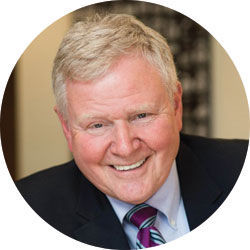
Rabbi Soloveitchik, reflecting on Passover, notes that the journey to freedom begins in silent submission: “Before Moses, there was complete silence. Hundreds of thousands of Jews—all of them mute."
“Moses, by defending the helpless slave about to be murdered by an Egyptian, by rebuking the Jews who were quarreling, restored sensitivity to the slaves, restored a sense of pride to the downtrodden Israelites.”
With Moses’ arrival, says Rabbi Soloveitchik, the slaves discovered that everyone is entitled to freedom. That oppression is unjust. That human evil is madness, an infringement of the natural law of morality.
Suddenly the sensation of pain, which even an animal feels, turned into an awareness of pain, and for the first time, they begin to cry, to rebel, to protest and to demand justice: “And it came to pass…that the children of Israel sighed by reason of the bondage, and they cried, and their cry came up to God.” (Exodus 2:23)
This cry of pain, this cry for justice and freedom, is one we hear at every Seder. At the beginning of the Seder, we point to the matzah and say, “This is the lachma anya, the bread of poverty and oppression that our ancestors ate in the land of Egypt.”
Next comes an invitation: “Let all who are hungry come in and eat.”
Rabbi Jonathan Sacks points out how strange this invitation is: “What hospitality is it,” he asks, “to offer the hungry the taste of suffering?”
Matzah, says Rabbi Sacks, represents two things: It is the bread of slaves, the food of poverty. At the same time, it is the bread of freedom, eaten by the liberated Israelites as they left Egypt.
What transforms the bread of oppression into the bread of freedom? It is, says Rabbi Sacks, the ability to hear the cry of others and the willingness to share it with others. In Egypt, when silent slaves cried out for freedom, they began their transformation to a community of caring and justice. This was true in Egypt and it’s still true today.
As we sit down to our Seder tables, we need to hear the cries of “all who are hungry,” members of our own Boston Jewish community, our friends and neighbors, who struggle with severe financial hardship.
“Redemption begins with an awareness of the pain of slavery,” says Rabbi Soloveitchik. It is with that awareness that we’ve established CJP’s Anti-Poverty Initiative, committing ourselves as a community to hear the voices of those who suffer; to share the resources of our community in a way that supports the journey from crisis to stability, from oppression to freedom; to transform the bread of suffering to the bread of fellowship and faith—from which redemption is born.
Best wishes to you and your family for a Pesach in which we share food, love and hope—with each other, with our community and with our world.

About the Author
A passionate advocate for Jews in Greater Boston and around the world, CJP President Barry Shrage has worked tirelessly to create an inclusive community and drive positive change.

0Comments
Add CommentPlease login to leave a comment